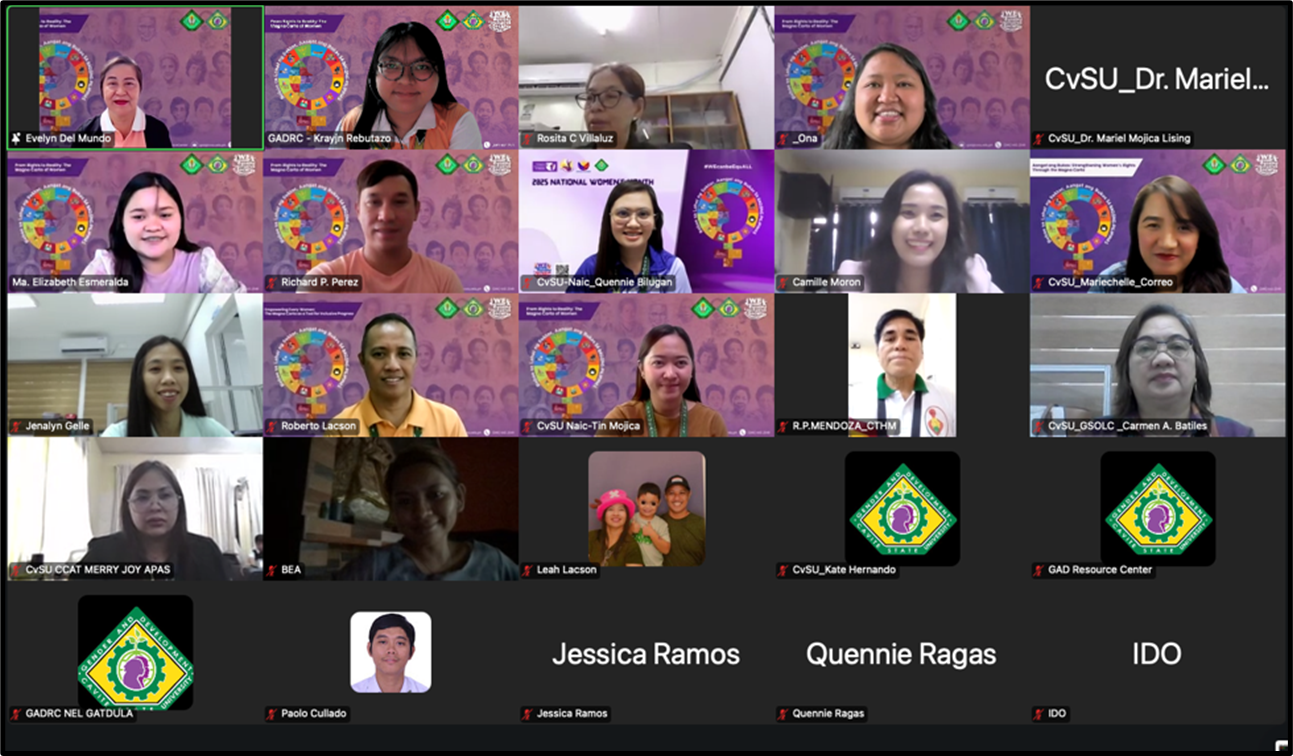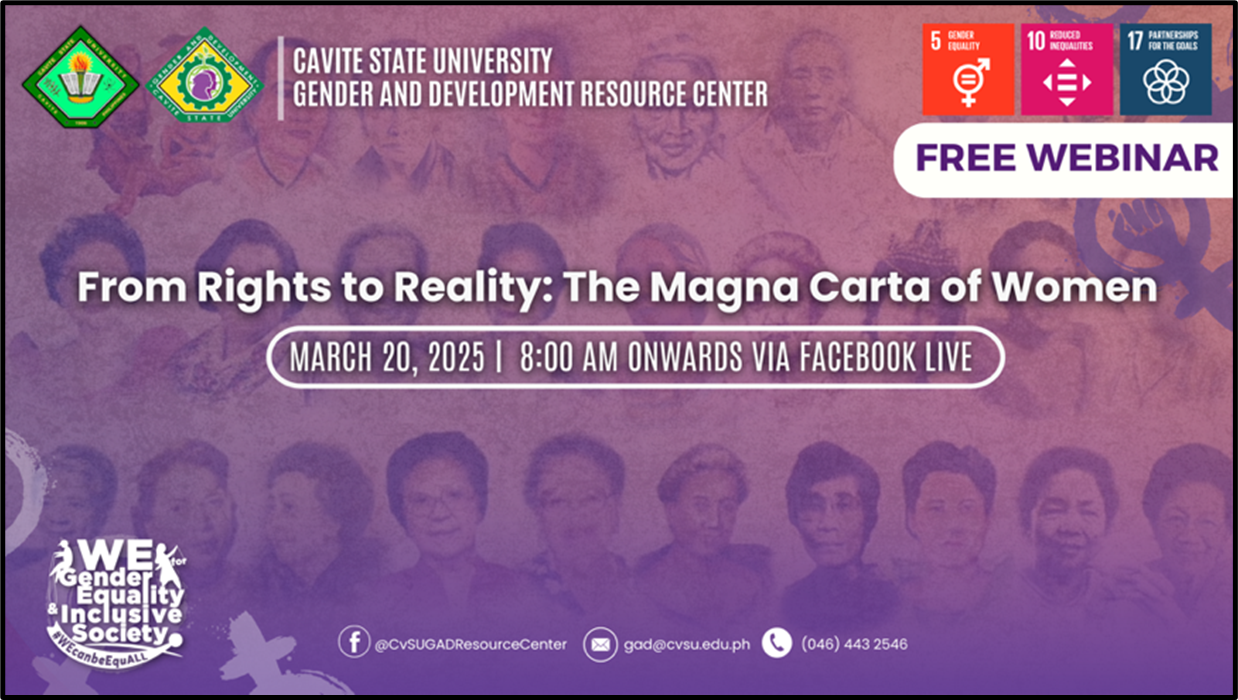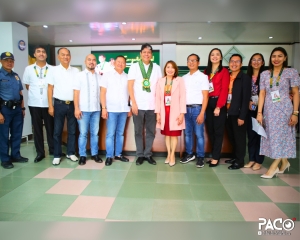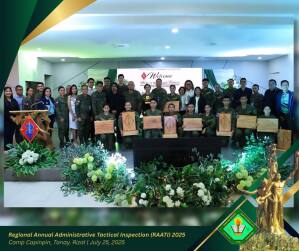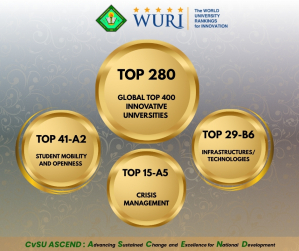![]()
The Cavite State University (CvSU), through the Gender and Development Resource Center (GADRC), conducted the third episode of its 2025 Women’s Month Webinar Series titled, “From Rights to Reality: The Magna Carta of Women,” March 20, 2025, via Zoom videoconferencing and Facebook livestream.
This webinar aimed to educate participants on the legal foundations of gender equality, particularly on Republic Act No. 9710, also known as the Magna Carta of Women. Discussions centered on gender disparities in employment, leadership, and decision-making, as well as strategies for fostering gender-inclusive workplaces and strengthening partnerships to promote gender equality.
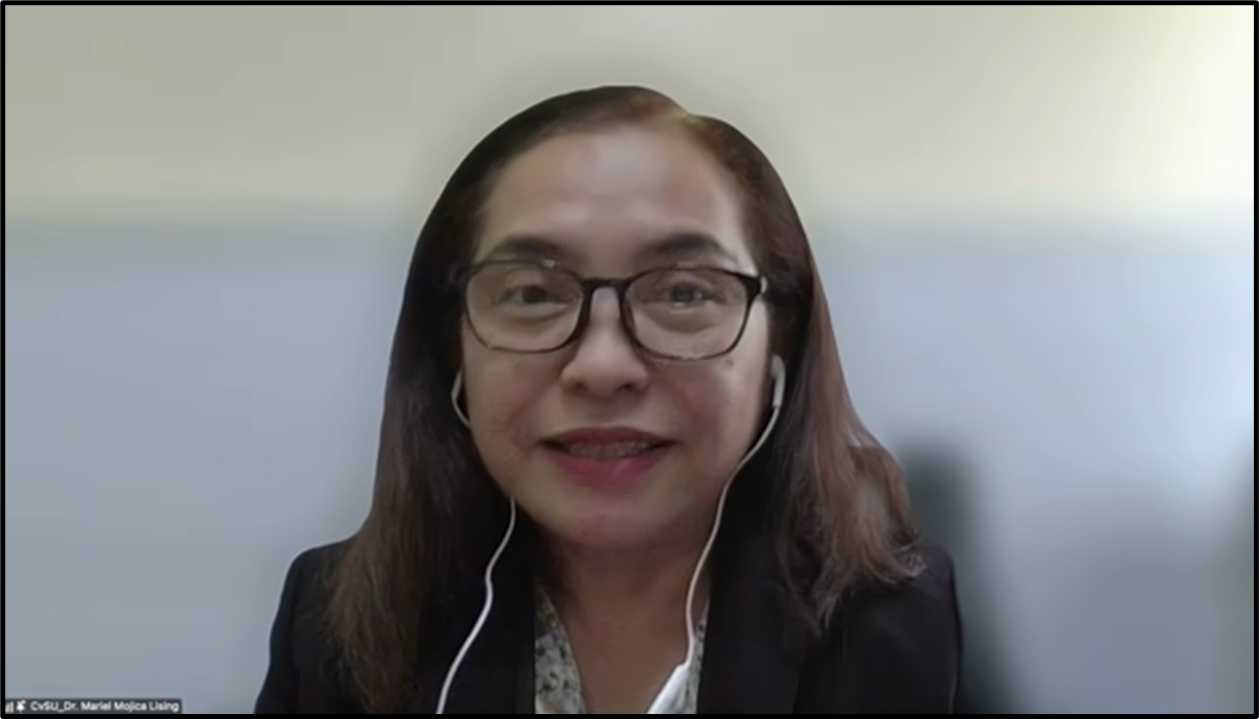
To formally start the webinar, Dr. Maria Soledad M. Lising, Dean of the College of Economics, Management, and Development Studies, delivered her opening message. She cited statistics on how women compare to men in everyday life. She also highlighted issues related to gender equality, such as gender discrimination and unequal opportunities, emphasizing that these challenges persist today. Additionally, she stated that just because these issues may not be personally experienced by some, it does not mean they no longer exist. Lastly, she thanked the GAD Resource Center for organizing the webinar on the Magna Carta of Women.
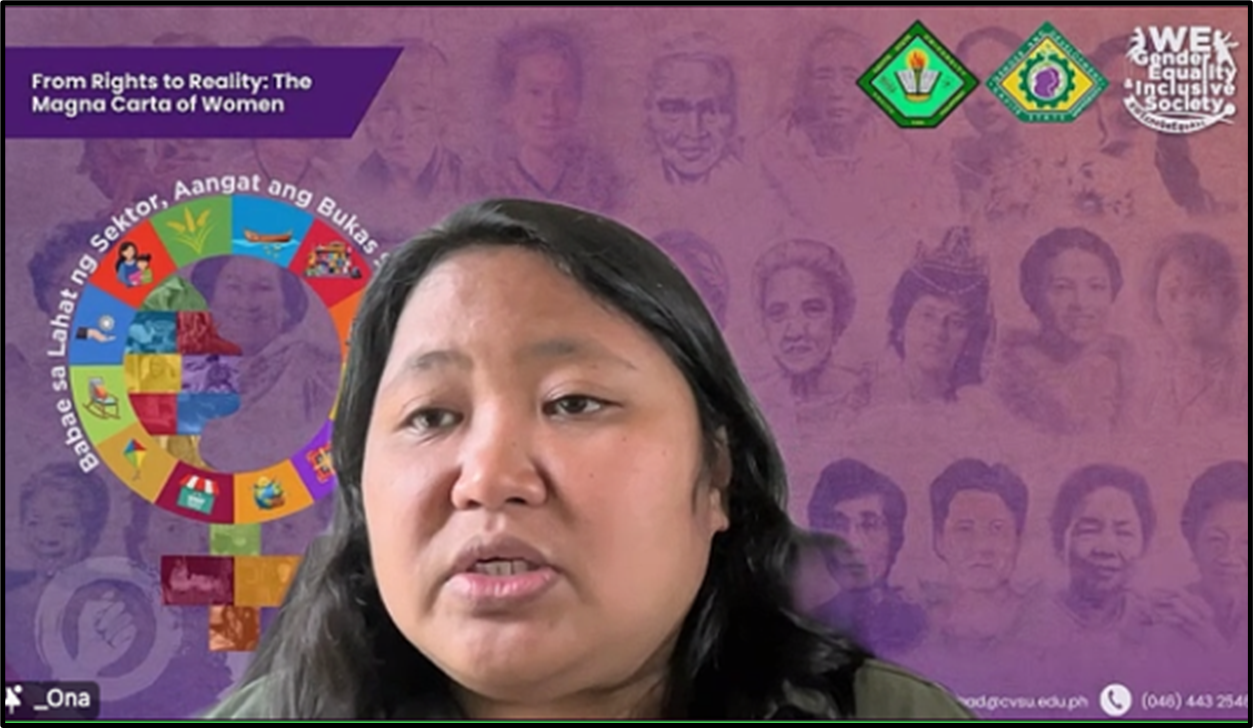
Atty. Rona Ann V. Caritos, Executive Director of the Legal Network for Truthful Elections (LENTE), discussed the importance of women’s political participation. She highlighted international frameworks such as the International Covenant on Civil and Political Rights, the Beijing Declaration, and CEDAW, which advocate for women’s representation in governance. Atty. Caritos also examined local legal provisions, including the 1987 Philippine Constitution and the Magna Carta for Women, while addressing the barriers women face in politics, such as technology-facilitated gender-based violence (TFGBV) during elections. She underscored the importance of anti-discrimination guidelines to ensure fair and inclusive political campaigns.
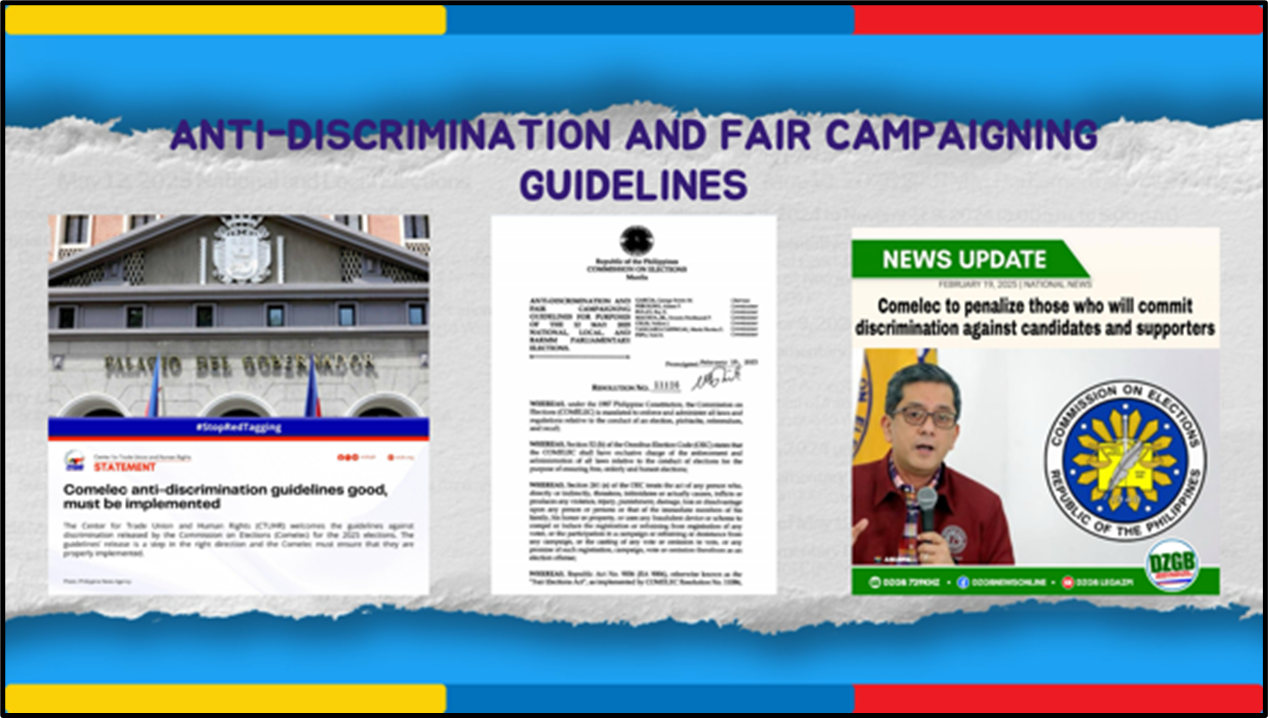
Lastly, Atty. Caritos highlighted the Anti-Discrimination and Fair Campaigning Guidelines which prohibit discrimination based on gender, disability, religion, and HIV status. These guidelines also ban acts of bullying, coercion, and vilification of vulnerable groups across various media platforms, including television, radio, and the internet.
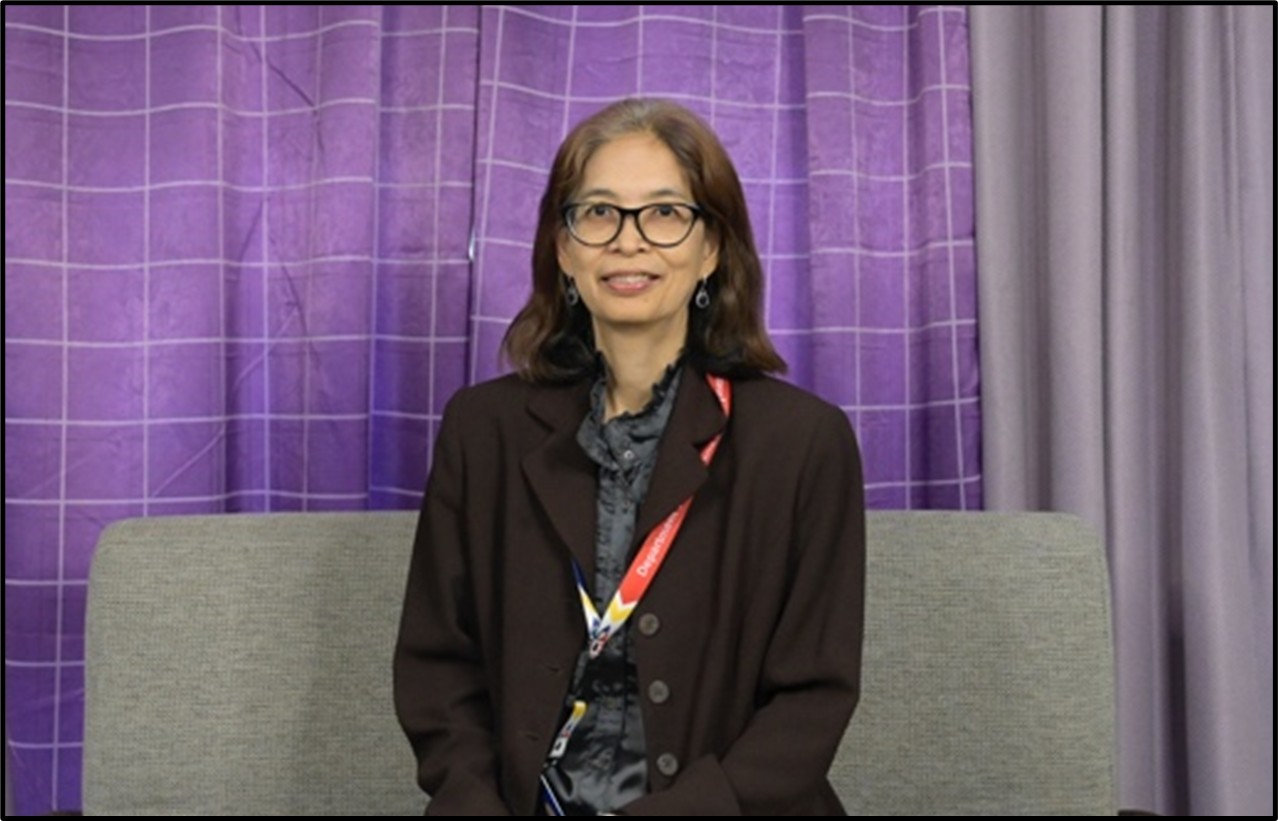
Atty. Rosita C. Villaluz from the Department of Labor and Employment Region IV-A discussed workplace policies promoting gender equality and labor standards. She emphasized compliance with laws on anti-sexual harassment, HIV/AIDS, and occupational safety. Atty. Villaluz elaborated on the Expanded Maternity Leave Act (RA 11210), which grants 105 days of paid leave, with additional provisions for solo parents and male partners. She also discussed ILO Convention No. 190, which mandates protection against workplace violence and harassment. Additionally, she highlighted international efforts by the World Bank and UN Women in advocating for childcare investments to enhance women’s workforce participation.
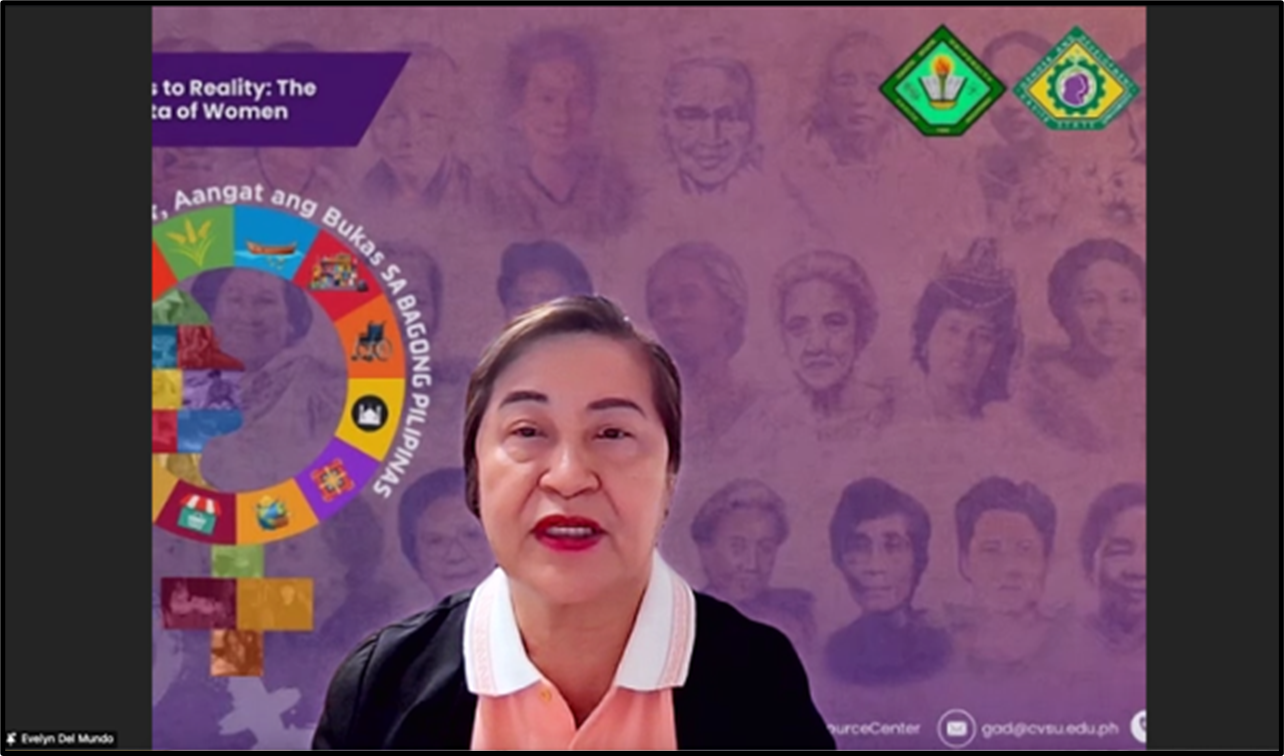
To formally close the webinar, Dr. Evelyn M. Del Mundo, Dean of the College of Nursing, acknowledged how the discussions in this webinar series have been both timely and essential as we continue to push for greater gender justice and empowerment. She emphasized that while the speakers have shown how far we have come, much work remains to translate legal rights into tangible changes in various aspects of women’s lives, including the workplace, home, healthcare, and education. Dr. Del Mundo also highlighted that having rights is not enough—there must be commitment and action to ensure that they are fully realized. Lastly, she reminded everyone that the fight for gender equality is not solely the responsibility of women, but a collective mission that requires the active participation of every member of society.
